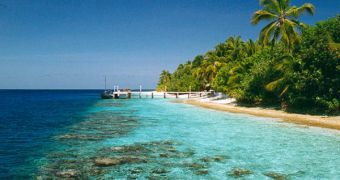The small oceanic nation, composed of some 1,200 islands, is located south of India, and it is mainly known as a touristic attraction. But, over the past few years, it has received extensive media coverage, as one of the nations to be severely affected by global warming and climate change. Most of its territory is located just 3 feet (1 meter) above sea level, rendering the state extremely vulnerable to floods caused by rising sea levels.
Furthermore, the population of the Maldives has increased two-fold in two decades, and it now numbers some 400,000 people. As the first democratically-elected president, Mohamed Nasheed vowed to take steps meant to avoid a catastrophe, so he announced, through his spokesperson, Ibrahim Hussein Zaki, that the nation was considering buying more ground from neighboring states, so as to create a haven for its population, in the event of major floods.
Thus far, the president-elect, due to be sworn in today (November 11), nominated India and Sri Lanka as possible destinations for the "exodus." "We are just about three feet above sea level. So any sea level rise could have a devastating effect on the people of the Maldives and their very survival," Zaki was quoted as saying at BBC’s "World Today" program.
According to the Intergovernmental Panel on Climate Change (IPCC), sea levels will rise by 2 feet (roughly 70 centimeters) by 2100. If this assessment comes true, the vast majority of islands in the Maldives will be sunk. Already, some of them have been covered by waters, following the 2004 Asian tsunami, and the floods it triggered.
As a result, the new president said he would create a fund, fueled by some of the earnings coming into the country via tourism. When this fund is large enough, the government will make the purchase, so as to be able to ensure the survival of its population.

 14 DAY TRIAL //
14 DAY TRIAL //